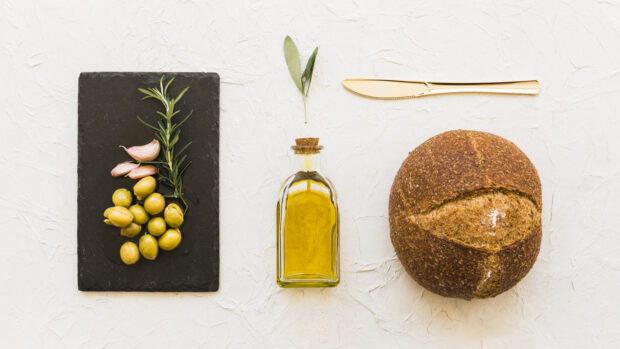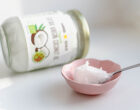We have noticed that Estonians have grown to love olive oil more and more. I don’t know if we want to live healthier and longer like Italians and Spaniards or is it a matter of taste? We like to think it’s both! High-quality olive oil is extremely healthy and also has a pleasant taste. However, there is a big difference between oil and oil, let’s talk about it in more detail so that you can make the best and healthiest choices in your life. To choose consciously means to live healthily.
Extra virgin olive oil and virgin olive oil
Extra virgin olive oil is one of the few oils obtained by simple mechanical pressing of the fruit, without further processing. It is a real delicacy, one of the most natural and vitamin-rich foods. Any kind of chemical processing and the use of pressing residues are prohibited. Extra virgin oil is the oil obtained from the first press, often cold pressed. Saturated fatty acids are less than 0.8%.
Virgin oil on the other hand is high-quality oil obtained by second or third pressing. Saturated fatty acids are less than 2%. Virgin olive oil is further divided into “vergine corrente” and “vergine lampante”. The flavor score is min. 3.5, saturated fatty acids are less than 3.3%.
Lamp oil or olive oil – what next?
Extra virgin oil came out with the first press, virgin quality with the second and third. Small family factories and home producers now throw the scraps into the compost or use olive stones to heat the oven. In the large-scale industry, however, they start producing “regular olive oil”, which you can find in the store under the name “olive oil”. For this, the waste from the production of virgin oil – stones, shells, etc is heated. The obtained oil has an unpleasant smell, high acidity, high content of trans fats, dark color and bad taste. This oil was used decades ago as lamp oil, but now, in the age of technology, all kinds of “chemicals” are added to make lamp oil a product with the proud name of “refined oil”. A little extra virgin olive oil is added to this product to add flavor. The law has not established how much virgin oil must be added in order for it to be sold under the name “olive oil”.
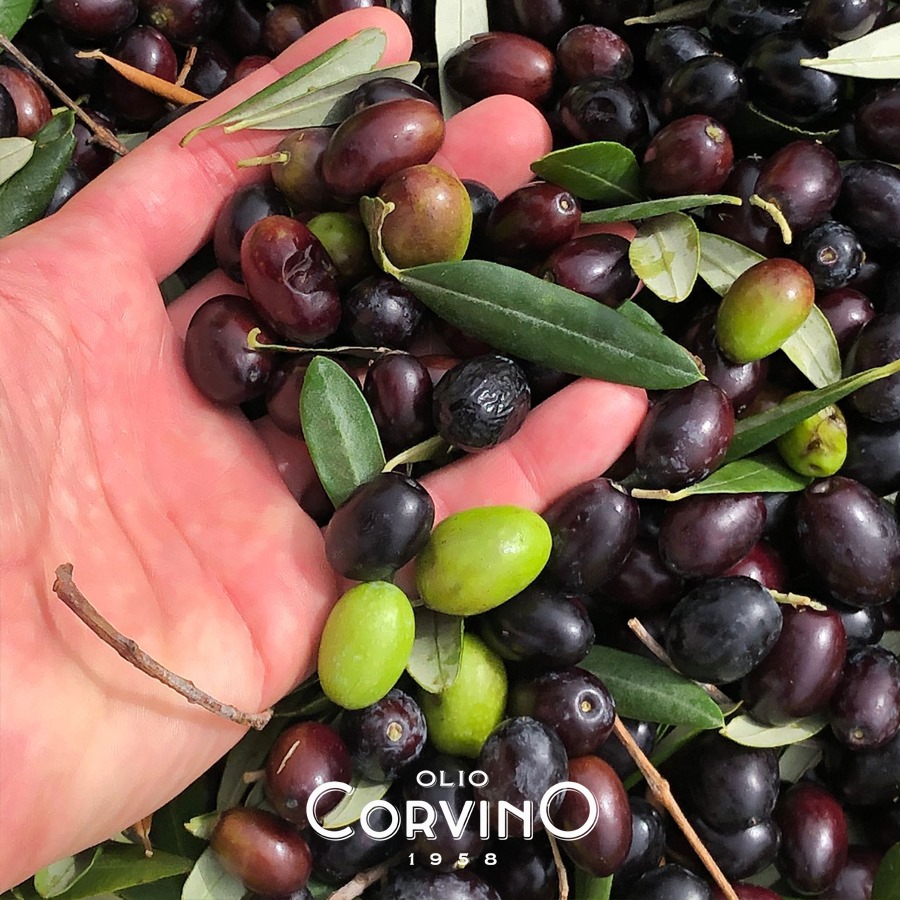
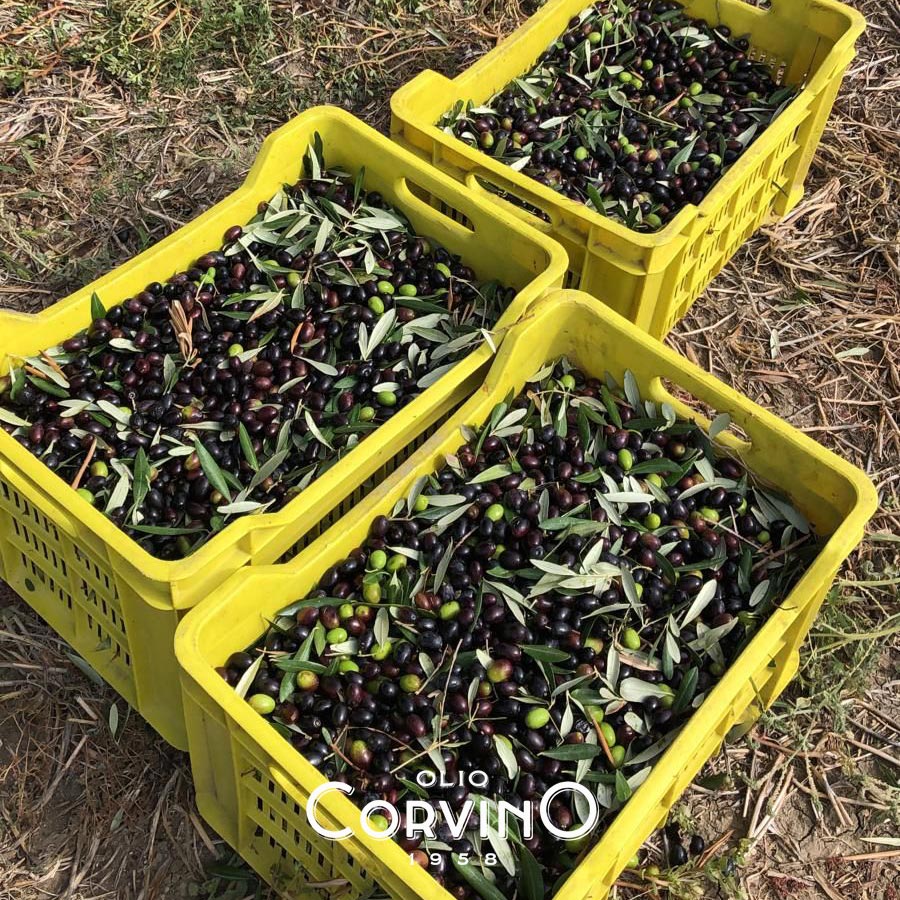
The elixir for beauty and a long life – freshly pressed olive oil
Usually olives are picked and pressed in November, which means that the freshest olive oil can be obtained between November and February, i.e. only 4 months of the year. You definitely can’t buy freshly pressed olive oil in the summer. In mid-December, the new oil reaches the shelves and retains its special properties for about three months. It is rare to find fresh oil in regular stores. In the first months, it is a real health and beauty elixir, it can be consumed with a teaspoon for cleansing, added to salads or used externally.
Corvino olive oil from the Gentile di Chieti olive variety
Bio4You organic stores sell Italian virgin olive oil from the sunny region of Abruzzo. The small Corvino family business, located in the seaside town of Vasto, far from pollution and industry, manages several local organic farms. The plantations grow one of the three famous Abruzzo olive varieties called Gentile di Chieti or Nostrana (translated as “our style”).
Oil pressed from the Gentile olive variety has a moderately piquant aroma. The taste has notes of green almond, artichoke and walnut. The olives ripen in November, after which they are picked by hand and immediately pressed. Fresh oil is marked with the label “olio novello” on the neck of the bottle. The labels are removed from the bottles at the end of February – by then the oil has softened.
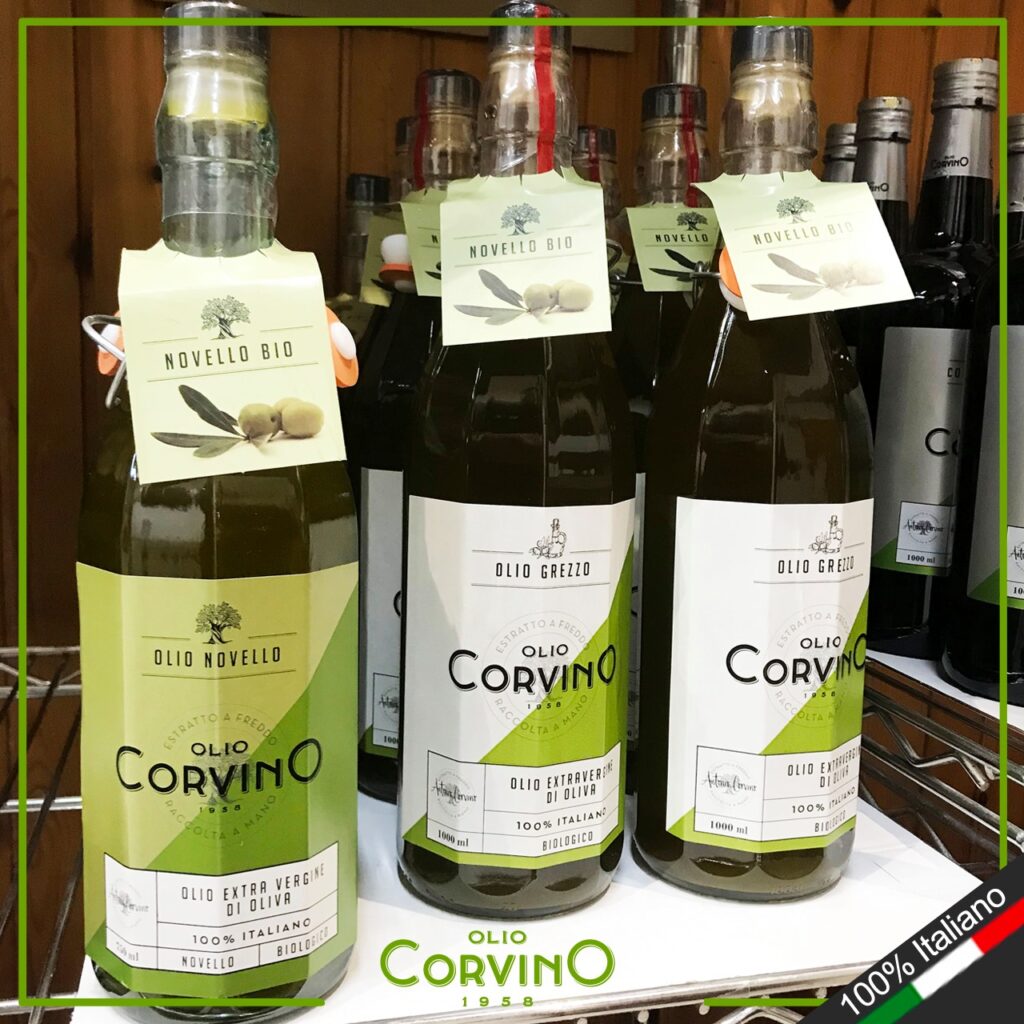
Why consume good quality olive oil?
– Olive oil has an anti-inflammatory qualities.
– The first cold-pressed oil is enriched with a lot of vitamin E, which acts like a miracle medicine for hair and skin.
– Improves heart function and fights against bad cholesterol.
– Even though it is an oil, it contributes to weight loss when consumed in moderate amounts.
– Good for digestion.
– Works well against aging.
Always read the ingredients list and be aware of what you’re putting into your body! Happy olive oil consuming.

